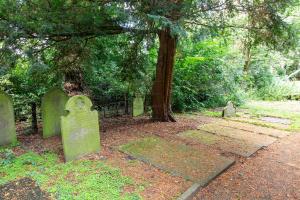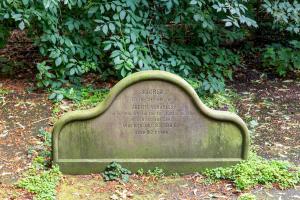Text this colour is a link for Members only. Support us by becoming a Member for only £3 a month by joining our 'Buy Me A Coffee page'; Membership gives you access to all content and removes ads.
Text this colour links to Pages. Text this colour links to Family Trees. Place the mouse over images to see a larger image. Click on paintings to see the painter's Biography Page. Mouse over links for a preview. Move the mouse off the painting or link to close the popup.
All About History Books
The Chronicle of Geoffrey le Baker of Swinbroke. Baker was a secular clerk from Swinbroke, now Swinbrook, an Oxfordshire village two miles east of Burford. His Chronicle describes the events of the period 1303-1356: Gaveston, Bannockburn, Boroughbridge, the murder of King Edward II, the Scottish Wars, Sluys, Crécy, the Black Death, Winchelsea and Poitiers. To quote Herbert Bruce 'it possesses a vigorous and characteristic style, and its value for particular events between 1303 and 1356 has been recognised by its editor and by subsequent writers'. The book provides remarkable detail about the events it describes. Baker's text has been augmented with hundreds of notes, including extracts from other contemporary chronicles, such as the Annales Londonienses, Annales Paulini, Murimuth, Lanercost, Avesbury, Guisborough and Froissart to enrich the reader's understanding. The translation takes as its source the 'Chronicon Galfridi le Baker de Swynebroke' published in 1889, edited by Edward Maunde Thompson. Available at Amazon in eBook and Paperback.
Brereton Hall, Cheshire is in Brereton, Cheshire [Map].
Around 1585 William Brereton 1st Baron Brereton (age 34) and his wife Margaret Savage (age 36) commissioned the building of Brereton Hall, Cheshire [Map]; a Prodigy House.
Margaret Savage: In 1549 she was born to John Savage and Elizabeth Manners. Before 25th February 1591 William Brereton 1st Baron Brereton and she were married. They were third cousins. On 7th April 1597 Margaret Savage died.
On 1st October 1631 William Brereton 1st Baron Brereton (age 81) died. His grandson William (age 20) succeeded 2nd Baron Brereton and inherited Brereton Hall, Cheshire [Map]. Elizabeth Goring Baroness Brereton by marriage Baroness Brereton.
In 1649 Jane Brereton died. Charles Holte 3rd Baronet inherited Brereton Hall, Cheshire [Map].
In April 1664 William Brereton 2nd Baron Brereton (age 53) died. His son William (age 32) succeeded 3rd Baron Brereton and inherited Brereton Hall, Cheshire [Map]. Frances Willoughby Baroness Brereton (age 39) by marriage Baroness Brereton.
On 17th March 1680 William Brereton 3rd Baron Brereton (age 48) died. His son John (age 20) succeeded 4th Baron Brereton and inherited Brereton Hall, Cheshire [Map].
In 1718 John Brereton 4th Baron Brereton (age 58) died without issue. His brother Francis (age 55) succeeded 5th Baron Brereton and inherited Brereton Hall, Cheshire [Map].
Before 18th June 1722 Charles Holte 3rd Baronet (age 73) died. His son Clobery (age 40) succeeded 4th Baronet Holte of Aston in Warwickshire and inherited Brereton Hall, Cheshire [Map].
Around 1729 Clobery Holte 4th Baronet (age 47) died. His son Lister (age 8) succeeded 5th Baronet Holte of Aston in Warwickshire and inherited Brereton Hall, Cheshire [Map].
On 8th April 1770 or 21st April 1770 Lister Holte 5th Baronet (age 49) died. His brother Charles (age 48) succeeded 6th Baronet Holte of Aston in Warwickshire and inherited Brereton Hall, Cheshire [Map].
On 13th March 1782 Charles Holte 6th Baronet (age 60) died. Baronet Holte of Aston in Warwickshire extinct. His daughter Mary Elizabeth Holte (age 26) and her husband Abraham Bracebridge inheritedBrereton Hall, Cheshire [Map]. The inheritance complicated since Lister Holte, 5th Baronet, appears to have bequeathed Heneage Legge a lifetime's interest in the Hall.
Archaeologia Volume 9 Appendix. Sir William Brereton, who signs the writing, was lord of the manor, and built a noble house [Brereton Hall, Cheshire [Map]] close to it in 1579. He was the son of that William Brereton who was one of the persons put to death by king Henry VIII. as a pretence for his charge against his queen Anne Boleyn.
Note. This appears to be a mistake. William Brereton didn't have children. William Brereton 1st Baron Brereton, the building of Brereton Hall, was the son of William Brereton.
All About History Books
The Chronicle of Walter of Guisborough, a canon regular of the Augustinian Guisborough Priory, Yorkshire, formerly known as The Chronicle of Walter of Hemingburgh, describes the period from 1066 to 1346. Before 1274 the Chronicle is based on other works. Thereafter, the Chronicle is original, and a remarkable source for the events of the time. This book provides a translation of the Chronicle from that date. The Latin source for our translation is the 1849 work edited by Hans Claude Hamilton. Hamilton, in his preface, says: "In the present work we behold perhaps one of the finest samples of our early chronicles, both as regards the value of the events recorded, and the correctness with which they are detailed; Nor will the pleasing style of composition be lightly passed over by those capable of seeing reflected from it the tokens of a vigorous and cultivated mind, and a favourable specimen of the learning and taste of the age in which it was framed." Available at Amazon in eBook and Paperback.
10th July 1817. Act of Parliament. Cap. 38. An Act for confirming an Agreement relating to the Reversion expectant of certain Estates in the Counties of Warwick and Chester [Brereton Hall, Cheshire [Map]], late of Sir Lister Holte, Baronet, deceased, and property belonging to Abraham Bracebridge Esquire, and for vesting such Estates and Property in Trustees, to convey and assure the same according to the said Agreement.
On September 18, 1817 the following notice regarding the sale of a property [Brereton Hall, Cheshire [Map]] in Cheshire appeared in 'The Times':
A very valuable and highly important freehold estate, together with the extensive Manor and Advowson of the Rectory of Brereton, the latter estimated at 100 pounds sterling per annum, with chief rents, quit rents, courts, etc., situate in the parish of Brereton, in the county of Cheshire, on the high road to Liverpool, about 160 miles from London - the estate is nearly in a ring fence and comprises the whole parish of Brereton, except one farm, a capital spacious mansion called Brereton Hall, seated in a park of considerable extent, in which are two fine sheets of water, and about 1,100 acres of land attached, and of value of nearly 2,000 pounds sterling per annum.
In 1830 John Howard (age 49) puchased Brereton Hall, Cheshire [Map].
Around 1884. Graves of servants of Brereton Hall, Cheshire [Map] in the churchyard of St Oswald's Church, Brereton [Map].

